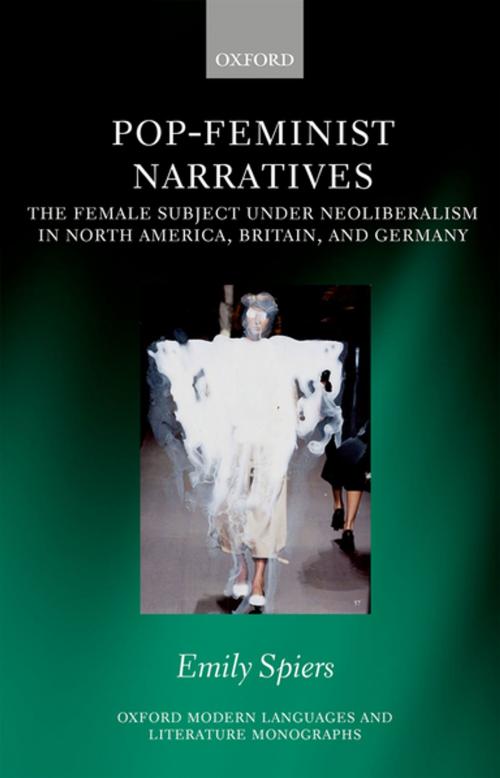Pop-Feminist Narratives
The Female Subject under Neoliberalism in North America, Britain, and Germany
Nonfiction, Social & Cultural Studies, Social Science, Gender Studies, Feminism & Feminist Theory, Fiction & Literature, Literary Theory & Criticism| Author: | Emily Spiers | ISBN: | 9780192552853 |
| Publisher: | OUP Oxford | Publication: | April 12, 2018 |
| Imprint: | OUP Oxford | Language: | English |
| Author: | Emily Spiers |
| ISBN: | 9780192552853 |
| Publisher: | OUP Oxford |
| Publication: | April 12, 2018 |
| Imprint: | OUP Oxford |
| Language: | English |
In Pop-Feminist Narratives, Emily Spiers explores the recent phenomenon of 'pop-feminism' and pop-feminist writing across North America, Britain, and Germany. Pop-feminism is characterised by its engagement with popular culture and consumerism; its preoccupation with sexuality and transgression in relation to female agency; and its thematisation of intergenerational feminist discord, portrayed either as a damaging discursive construct or as a verifiable phenomenon requiring remediation. Central to this volume is the question of theorising the female subject in a postfeminist neoliberal climate and the role played by genre and narrative in the articulation of contemporary pop-feminist politics. The heightened visibility of mainstream feminist discourse and feminist activism in recent years—especially in North America, Britain, and Germany—means that the time is ripe for a coherent comparative scholarly study of pop-feminism as a transnational phenomenon. This volume provides such an account of pop-feminism in a manner which takes into account the varied and complex narrative strategies employed in the telling of pop-feminist stories across multiple genres and platforms, including pop-literary fiction, the popular 'guide' to feminism, film, music, and the digital.
In Pop-Feminist Narratives, Emily Spiers explores the recent phenomenon of 'pop-feminism' and pop-feminist writing across North America, Britain, and Germany. Pop-feminism is characterised by its engagement with popular culture and consumerism; its preoccupation with sexuality and transgression in relation to female agency; and its thematisation of intergenerational feminist discord, portrayed either as a damaging discursive construct or as a verifiable phenomenon requiring remediation. Central to this volume is the question of theorising the female subject in a postfeminist neoliberal climate and the role played by genre and narrative in the articulation of contemporary pop-feminist politics. The heightened visibility of mainstream feminist discourse and feminist activism in recent years—especially in North America, Britain, and Germany—means that the time is ripe for a coherent comparative scholarly study of pop-feminism as a transnational phenomenon. This volume provides such an account of pop-feminism in a manner which takes into account the varied and complex narrative strategies employed in the telling of pop-feminist stories across multiple genres and platforms, including pop-literary fiction, the popular 'guide' to feminism, film, music, and the digital.















